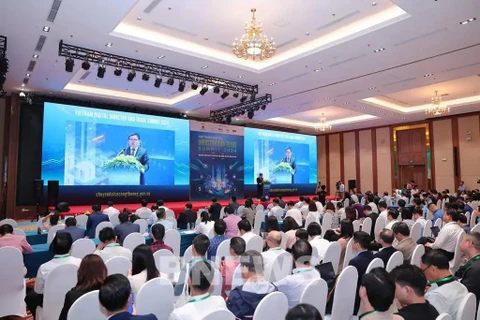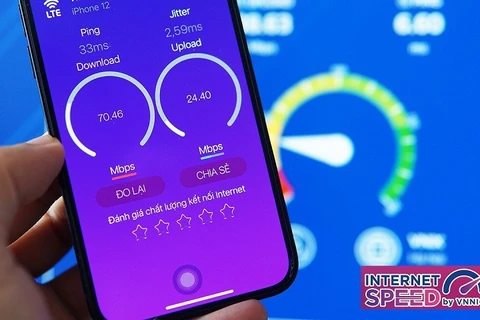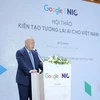
Hanoi (VNA) – Vietnam is on the brink of a digital revolution, with projections indicating that the country will record 100 million Internet subscribers by 2029.
The forecast was unveiled at the Internet Day 2024 conference and exhibition that opened in Hanoi on November 27 under the theme "A new leap for Vietnam's Internet: Breakthroughs with data centres, cloud, 5G, and AI".
Chairman of the Vietnam Internet Association Vu Hoang Lien highlighted the remarkable evolution of Internet usage in Vietnam, noting that each phase has brought not only technological advancements but also cultural shifts. As technology continues to evolve very fast, the demand for digital transformation is surging, and the Vietnamese Government's proactive stance on expanding Internet access, especially in remote and rural areas, further fuels this momentum.
Reflecting on the past digital milestones, Lien recalled that in 2008, Vietnam had just 20 million Internet users, representing about 24% of the population, but by 2014 this figure had surged to over 40%. The number of Internet users is expected to continue its steady rise during the 2024-2029 period, setting the stage for Vietnam to become an innovation hub in the era of Artificial Intelligence of Things (AIoT). However, he stressed that achieving this breakthrough requires robust collaboration between the Government, businesses, and the technology community.
Nguyen Thanh Phuc, Director of the Telecommunications Department under the Ministry of Information and Communications, underscored the pivotal role of advanced digital technologies such as data centres, cloud computing, 5G, and AI in driving social transformation. These technologies are not only propelling innovation in Vietnam but also addressing key challenges, positioning the country for a leap forward in the digital age.
Recognising this potential, the ministry has introduced a digital infrastructure development framework to help firms identify new growth areas, encompassing telecom and Internet infrastructure, data infrastructure, digital physical infrastructure, and digital utilities and technology infrastructure, Phuc said.
This year marks an important milestone in the rollout of 5G in Vietnam, with major telecom operators like Viettel, VNPT, and MobiFone focusing on commercialising and officially providing services of the generation. To enhance global communication and data exchange, Vietnam plans to launch at least two new undersea cable lines by 2025, with an additional eight slated for completion by 2030; and encourage technology companies to invest in the construction of large-scale data centres, including those focused on AI.
Furthermore, the ministry is also fostering the development of platforms that offer cutting-edge digital technologies like IoT, AI, big data, blockchain, and cybersecurity. These aim to facilitate technology access for Vietnamese firms and citizens while minimising initial investment costs./.






















